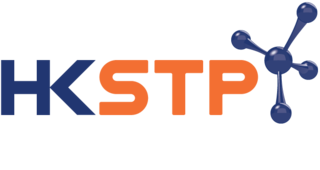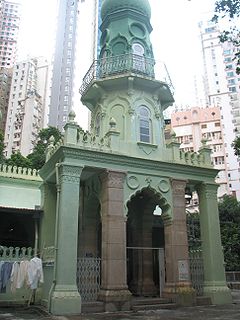Related Research Articles
This article is about the demographic features of the population of Hong Kong, including population density, ethnicity, education level, health of the populace, religious affiliations and other aspects of the population.

Education in Hong Kong is largely modelled on that of the United Kingdom, particularly the English system. It is overseen by the Education Bureau and the Social Welfare Department.

Mui Wo is a rural town on the eastern coast of Lantau Island in Hong Kong. The 2011 Census recorded 5,485 people living in Mui Wo and its environs.

Hong Kong's Department of Health is responsible for healthcare policies and the provision of basic healthcare services and established in 1939. The public hospitals are managed by the department's Hospital Authority in 1991 to 1994. The department reports to the Health, Welfare and Food Bureau.

The High Court of the Hong Kong Special Administrative Region, consists of the Court of Appeal and the Court of First Instance; it deals with criminal and civil cases which have risen beyond the lower courts. It was named the Supreme Court before 1997. Though previously named the Supreme Court, this Court has long been the local equivalent to the Senior Courts of England and Wales and has never been vested with the power of final adjudication.

The Hong Kong Science and Technology Parks Corporation (HKSTP) is a public corporation set up by the Hong Kong Government in 2001 to foster the development of innovation and technology in Hong Kong.
Highly skilled applicants can apply for residency in Hong Kong. Point tests for skill applicants and economic contribution by investors were recently introduced by the Immigration Department of Hong Kong.
Subjected to legal regulations, the Hong Kong Disciplined Services are made up of the following:-
Under Article 108 of the Basic Law of Hong Kong, the taxation system in Hong Kong is independent of, and different from, the taxation system in mainland China. In addition, under Article 106 of the Hong Kong Basic Law, Hong Kong enjoys independent public finance, and no tax revenue is handed over to the Central Government in China. The taxation system in Hong Kong is generally considered to be one of the most simple, transparent, and straightforward systems in the world. Taxes are collected through the Inland Revenue Department (IRD).
In the densely populated Hong Kong, waste is a complex issue. The territory generates around 6.4 million tons of waste each year but is able to collect and process only a minimal portion of recyclable waste. By 2019, its existing landfills are expected to be full. The government has introduced waste management schemes and is working to educate the public on the subject. On the commercial side, producers are taking up measures to reduce waste.
Hong Kong is one of the healthiest places in the world. Because of its early health education, professional health services, and well-developed health care and medication system, Hongkongers enjoy a life expectancy of 86 for females and 80 for men, which is the third highest in the world, and an infant mortality rate of 2.73 deaths per 1,000 births, the ninth-lowest in the world. The proportion of the population over 65 years old is expected to grow from 14% in 2013 to 18% in 2018, and the number of people with a long-term condition is expected to increase by 33% over the same period.
Hong Kong's medical infrastructure consists of a mixed medical economy, with 12 private hospitals and 43 public hospitals. Hong Kong has high standards of medical practice. It has contributed to the development of liver transplantation, being the first in the world to carry out an adult to adult live donor liver transplant in 1993. Both public and private hospitals in Hong Kong have partnered with the Australian Council on Healthcare Standards (ACHS) for international healthcare accreditation. There are also polyclinics that offer primary care services, including dentistry.
Ann Tse-kai GBM OBE JP was a Hong Kong industrialist, legislator and sinologist. He was the author of Cracking the Chinese Puzzles, a textbook on Chinese characters.

Jamia Mosque is a mosque at Mid-levels, Hong Kong, China. The mosque is the oldest mosque in Hong Kong. The neighboring streets Mosque Street and Mosque Junction are named after this mosque. Mufti Abdul Zaman is the main Imam of this Mosque and he leads prayers and taraveeh in the month of Ramadan.
Steve Hui Chun-Tak is the former Assistant Commissioner of Police of the Hong Kong Police Force. Hui became well known during the 2014 Occupy campaign, when he started to give daily televised updates from 30 September 2014 as Chief Superintendent of Police. Hui's polite and friendly style of presentation was well received by the public and was liked by many including the protestors. A Facebook page '四點鐘許sir' created by a netizen on 8 October 2014 received more than 50,000 followers within a week.
Guangdong Scheme was launched on 1 October 2013. The purpose of the Scheme is to provide the Old Age Allowance, on a monthly basis, for eligible Hong Kong people aged 65 or above who choose to reside in Guangdong. The recipients can get a monthly cash allowance of $1,135 if they satisfy the minimum residence period of 60 days in Guangdong in a payment year, along with the other requirements.
Illegal drug abuse is the action of using drugs that are prohibited by the government or strictly controlled by means of prescription to alter one’s consciousness and emotions. The Hong Kong government has a zero tolerance policy against illegal drug use. Drugs such as cannabis and ecstasy, which can be considered recreational drugs in other countries are all illegal in Hong Kong.

TVBully refers to the monopolistic market dominance of free-to-air television in Hong Kong. Television Broadcasts Limited (TVB) was blamed for this monopolization and this phenomenon had been a huge challenge for the operation of TVB. ATV has also complained about TVB's monopoly abuse.

Chi Fu is one of the 17 constituencies in the Southern District, Hong Kong.

Innovation and Technology Bureau is one of the policy bureaus under the Government Secretariat of the Government of Hong Kong and is responsible for policy matters on the development of innovation and technology and information technology which are the key drivers in this endeavour. The Bureau is led by the Secretary for Innovation and Technology, currently Nicholas Yang.
References
- http://www.fhs.gov.hk/english/main_ser/child_health/child_health_recommend.html
- http://www.fmshk.org/database/articles/005sf1.pdf
- http://www.fhs.gov.hk/english/main_ser/child_health/files/record_card.pdf
- Basic Principles in Biology (book 3), Y.K.To ISBN 962-354-183-X
- Advanced-level Biology for Hong Kong (volume 4), Y.K.Ho ISBN 962-990-637-6